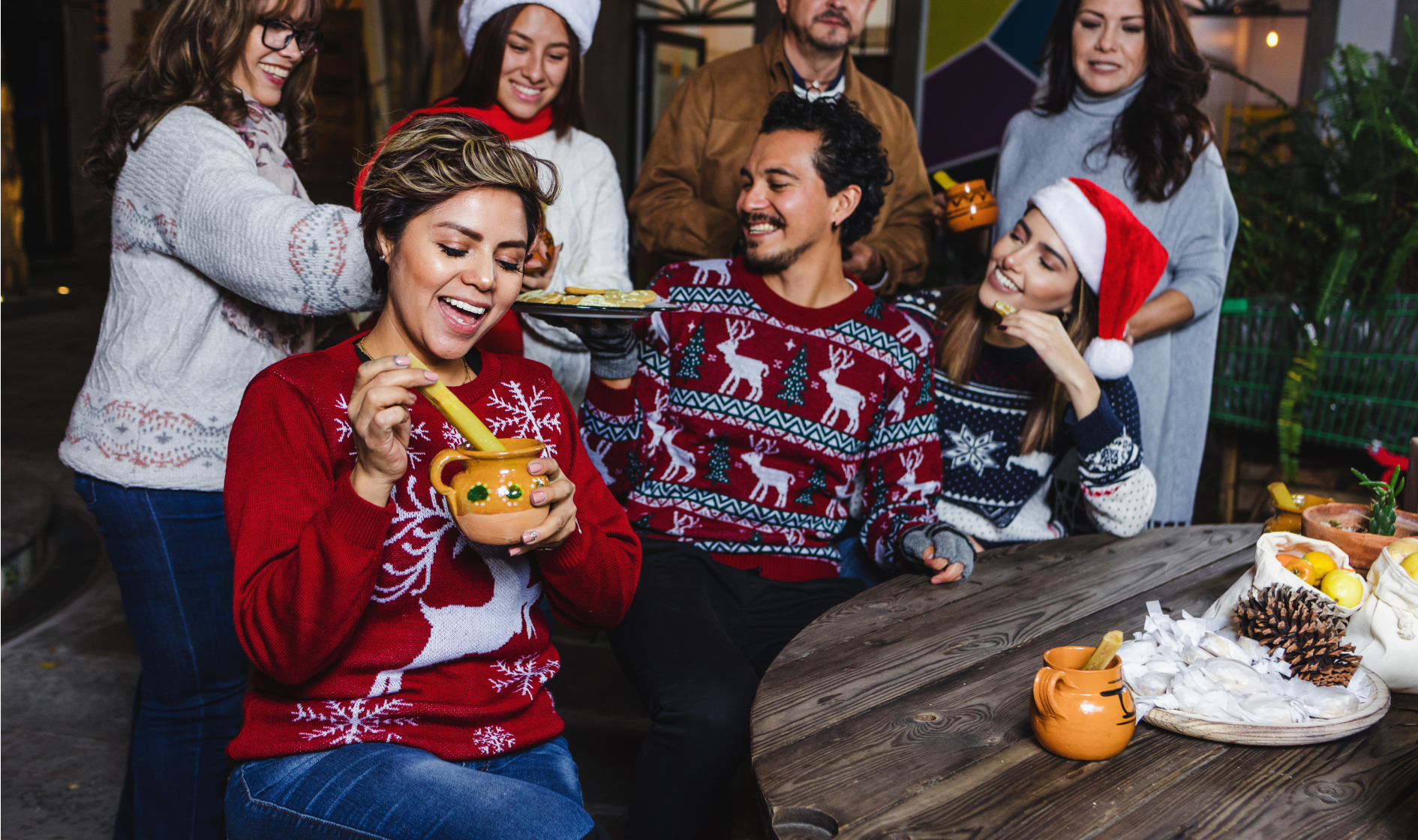When thinking of Christmas, many things come to mind: a beautiful tree full of ornaments with some wrapped gifts underneath, colorful decorations with twinkling lights and, of course, the figure of Santa Claus dressed in red attire. The Winter holidays are all about sharing joy with loved ones. But for some people, the excitement begins even earlier, with celebrations kicking off days in advance.
In Latin America, Posadas and Novenas embody the spirit of anticipation. Rooted in Catholic tradition, these celebrations honor the Nativity story, emphasizing the values of faith, family, and community. Held from December 16th to 24th, Posadas and Novenas symbolize the nine months of Mary’s pregnancy.
Despite their differences, Posadas and Novenas share a common purpose: to bring the Christmas spirit to life. By gathering family, friends, and neighbors together, these celebrations foster a sense of community and togetherness. The sharing of traditional foods, lively music, and collective prayer creates lasting bonds and cherished memories, highlighting the true essence of the season.
Posadas
Originated in the 16th Century, the tradition of Posadas began as a way for the Spanish missionaries to teach Catholicism to native people. This cherished custom commemorates Mary and Joseph’s journey to find an inn (Posada in Spanish) on the night of Jesus’s birth. Over time, Posadas have evolved into a meaningful religious celebration in countries like Mexico, Guatemala, Honduras, and El Salvador.
While Posadas share many similarities across countries, each celebration has its distinct character:
- Mexico: In Mexico, posadas are synonymous with delicious traditional cuisine. The tamales (corn-based dough with flavorful savory fillings) and Ponche (a warm drink made with dried fruits, sugarcane and cinnamon) are truly a staple. One of the most exciting traditions is the piñata, a seven-pointed star that represents the seven deadly sins. Both kids and adults take turns trying to break it open, and when it finally bursts, candies and treats come tumbling out—making for a fun and interactive experience for all.
- Guatemala: In addition to having tamales, Guatemalan posadas are also known for their pacayas (stuffed palm flowers) and rellenos (stuffed vegetables). Traditional marimba music and lively baile folklórico bring the festivities to life, while families gather to pray, sing Christmas carols, and share in the holiday spirit.
- Honduras: When it comes to food, posadas in Honduras are not behind. They serve montucas (similar to tamales but with simpler fillers like ground beef and cheese) and a flavorful sopa de gallina (hen soup). Hot chocolate is also a key part of the tradition, adding a sweet touch to the festive atmosphere. The celebration is filled with traditional music and dance, including the lively punta and samba, bringing everyone together to celebrate in joy and harmony.
- El Salvador: Pupusas (handmade corn tortillas stuffed with cheese, beans, and/or meat), empanadas (pastry pockets with savory fillings) and pan dulce (sweet bread) take all the attention during the posadas in El Salvador. These tasty treats are enjoyed alongside vibrant celebrations featuring traditional music and dance, including the energetic xuc and salsa.
Novenas
Novenas (or Novenas de Aguinaldo) are a beloved Christmas tradition celebrated in Colombia, Ecuador, and Venezuela, dating back to the 17th century. Rooted in Catholic tradition, they originated as a nine-day devotional prayer to prepare for the celebration of the birth of Jesus Christ. During the Novenas, family and friends gather each evening to reflect on the Nativity story, focusing on themes such as faith, humility, and joy. The evening culminates in the singing of traditional carols, filling homes with music and festive cheer.
The differences between each country are:
- Colombia: As in many other Latin American countries, Colombians enjoy eating tamales during Novenas. Traditional foods include buñuelos (fried dough balls), natilla (a custard-like dessert), empanadas, and canelazo (a warm spiced drink). The celebrations are marked by the singing of villancicos (traditional Christmas carols), often accompanied by tambourines, maracas, and flutes. Additionally, pesebres (nativity scenes) are displayed in homes and public spaces, contributing to the festive and vibrant atmosphere.
- Ecuador: Traditional treats include pristiños (crispy fried pastries drizzled with honey) and empanadas (sweet pastries filled with cheese), which are a beloved part of Ecuadorian novenas celebrations. To add to the festive spirit, some families also serve traditional beverages such as Rompope or Mistela.
- Venezuela: Food plays an important role in Venezuelan novenas. Hallacas are a staple of the season (corn dough pockets filled with meat and wrapped in plantain leaves). Pan de jamón, a sweet bread filled with ham, and dulce de lechoza, candied green papaya, are also favorite holiday treats.
Keeping the Tradition Alive even From Afar
Posadas and Novenas offer a beautiful way to stay connected to people’s roots and pass on these meaningful traditions, even when miles apart. If your family and friends are spread across different locations, consider having a virtual celebration. Share a prayer, sing carols together, and enjoy the sense of togetherness. To make it even more special, invite those around you to join and teach them about the tradition! And don’t forget— many Latin markets in the U.S. offer fresh ingredients for your favorite recipes and festive decorations, helping you recreate the full experience no matter where you and your loved ones are!




